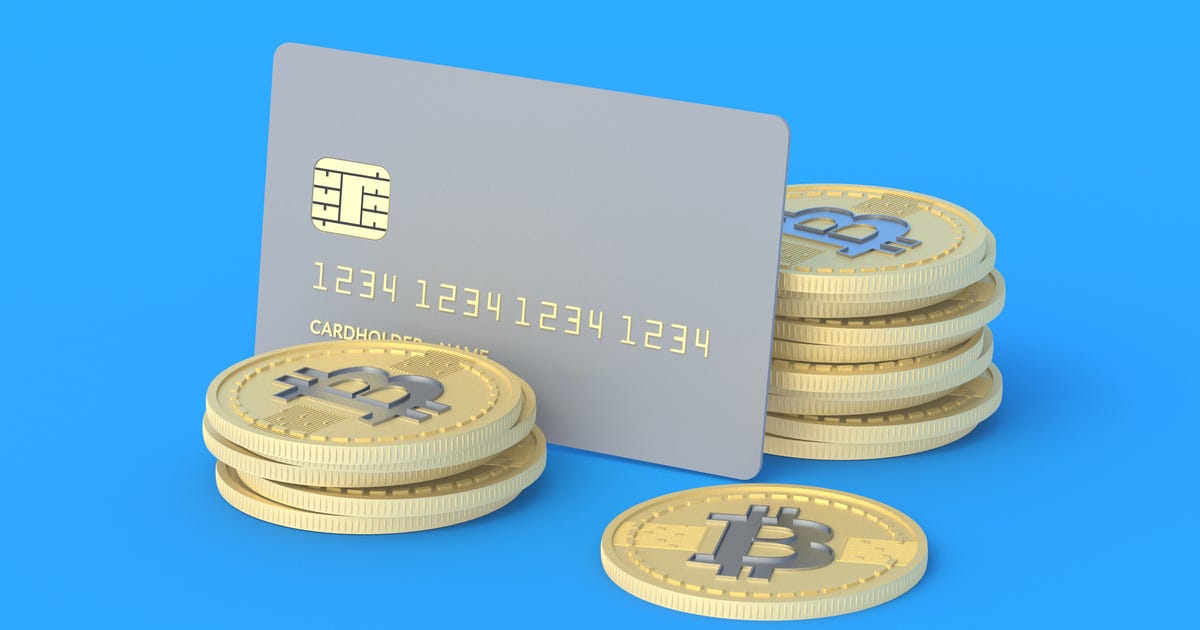
How to Use a Crypto Debit Card to Make Purchases
When you buy cryptocurrency -- whether it's ethereum, bitcoin or another digital coin -- it generally lives in a wallet. It sits idle there unless you transfer it to another account, spend it on NFTs (or other items purchasable via crypto) or convert it into government-issued currency, such as US dollars, and withdraw it to deposit it into your bank account.
However, with the growing interest in cryptocurrency in the last few years, hundreds of millions of people have crypto that they may want to spend but don't know how to. That's where crypto debit cards come in. They let you use the cryptocurrency in your digital wallet on purchases at grocery stores, gas stations and other retail outlets.
If you own cryptocurrency and want to spend it in the real world, here's what you need to know about getting your hands on a crypto debit card.
What is a crypto debit card?
A crypto debit card is much like your regular debit card, but instead of being connected to your bank account, it's tied to a digital wallet that contains your cryptocurrency. With each transaction, the cryptocurrency you own is automatically converted into whatever government-issued currency the retailer accepts, such as the US dollar, to complete the purchase.
What are the pros and cons of using crypto debit cards?
Although crypto debit cards help you spend your cryptocurrency to make purchases, keep a few things in mind before applying for one.
Pros of a crypto debit card:
- It's easier to spend the cryptocurrency in your wallet.
- Some cards come with cash-back rewards.
- You can store and use traditional currencies, such as the dollar, to make purchases.
Cons of a crypto debit card:
- You might have to pay transaction, withdrawal or exchange fees or a monthly flat fee.
- You'll owe capital gains taxes on every transaction.
- Cards can be limited to certain regions, restricting where you can use the card.
How do I get a crypto card?
If you're set on getting a crypto debit card, you must first create an account with a cryptocurrency exchange or a digital wallet and then either transfer cryptocurrency into your account or purchase it.
Know that there are waitlists to get a card. Once you meet the setup requirements, including verifying your identity, you can apply for the card. It can then take weeks or even months to arrive, depending on the size of the list.
Which crypto debit cards should I consider?
Choosing a cryptocurrency exchange or wallet depends on several factors, such as the type of cryptocurrency you own or cash-back rewards. Here are a few of the biggest ones:
- Coinbase, one of the largest crypto exchanges in the US, offers the Coinbase Card, a Visa debit card that lets you use your crypto assets to make purchases in person and online. This card is currently available to select US customers.
- Crypto.com, another cryptocurrency exchange, has a variety of debit card options offering different crypto rewards -- depending on how much you're willing to pay.
Two other crypto debit cards to consider are the Binance Visa Card and the recently announced Robinhood Cash Card.
If you're interested in earning crypto rewards, you can also explore crypto credit cards, which allow you to earn rewards back on everyday purchases in the form of cryptocurrency.
Can I use my debit card from a major bank with crypto?
Right now, debit cards from Bank of America, Chase, Citibank and Wells Fargo, for example, don't handle cryptocurrency. You can, however, use your crypto debit card at one of their ATMs, but expect to pay fees if you do.
New to cryptocurrency? Here's an explainer on buying and selling bitcoin, as well as a guide on how to keep your cryptocurrency and money safe.
The editorial content on this page is based solely on objective, independent assessments by our writers and is not influenced by advertising or partnerships. It has not been provided or commissioned by any third party. However, we may receive compensation when you click on links to products or services offered by our partners.
Source



